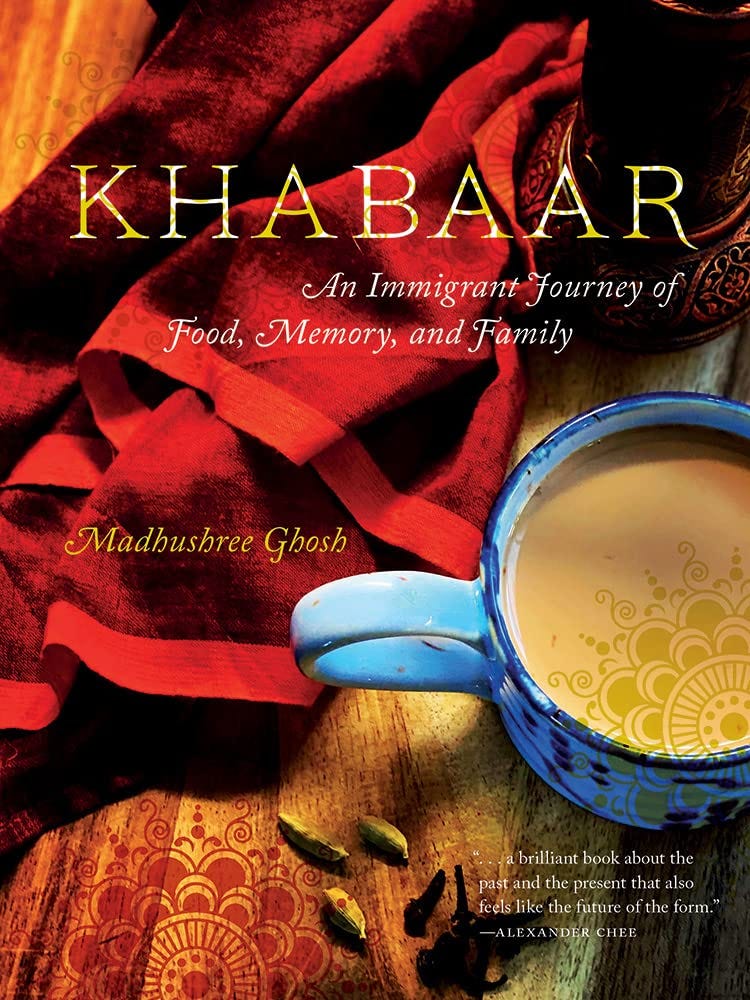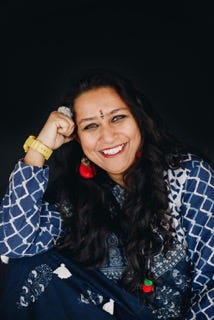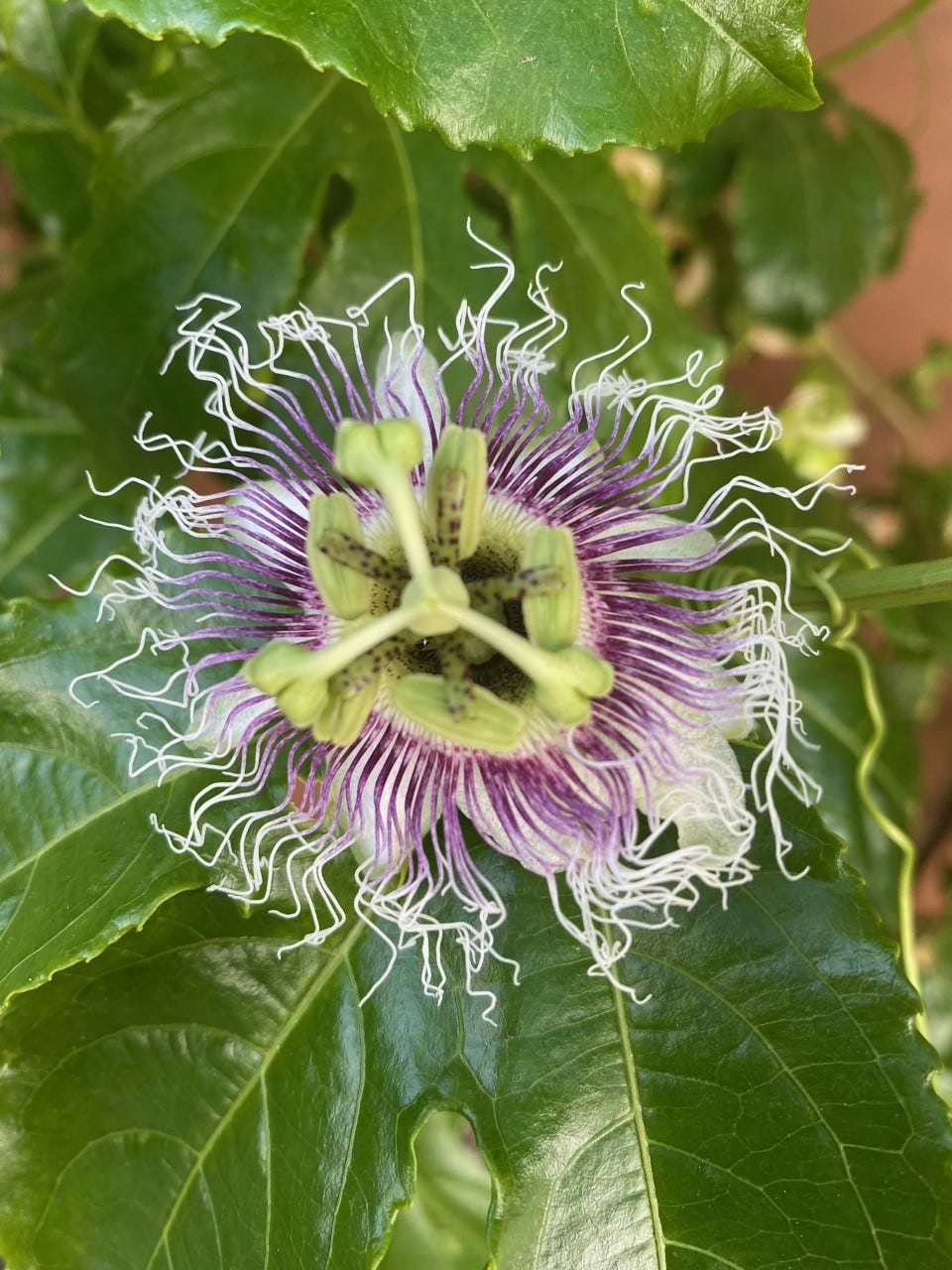Purchase KHABAAR here
Madhushree Ghosh’s work is focused on food, immigrant journeys, social justice in particular, about women-of-color-in-science. Her debut food narrative memoir, Khabaar: An Immigrant Journey is forthcoming from University of Iowa Press, Spring 2022.
Madhushree’s work has been Pushcart-nominated and was the 2020 Notable Mention in Best American Essays in Food Writing. She has been published in The New York Times, Washington Post, Longreads, Catapult, Guernica, BOMB magazine, Panorama, The Rumpus, DAME, Hippocampus and others.
She is an Oakley Hall Scholar (Squaw Valley Fiction Writers’ Conference) and a 2020-21 Sirenland recipient (Positano, Italy).
Madhushree has a PhD in Biochemistry, and post-doctoral fellowship in molecular biology from Johns Hopkins University, a Global Conflict Management and Negotiations certification (MBA) from Thunderbird University, an Executive Women in Leadership Certification (2020) and a Diversity, Equity and Inclusion Certification from Cornell University (2021). She actively mentors emerging women leaders in science and works in global oncology diagnostics, based in San Diego.
Pop-Up Questions
The writer picks five out of ten pop-up questions.
What do you think about when you are awake at 3 am?
Ghosh: It's usually why is the dog growling in her sleep, but when I am up and have been up and it's 3 AM, it's because a certain braided essay isn't working, or that I am so excited to research a topic I had no idea about till I started and I cannot stop. Words excite, fascinate and entice me and 3 AM awake situations are because adrenaline is rushing through and I cannot wait for the day to begin.
What book do you wish you could read again for the first time and why?
Ghosh: I wish I could read Crying in H Mart by Michelle Zauner for the first time again. Oh my goodness, what was it when it started with the food, us rushing into H mart with her, watching her mourn her mother and zoom back into how it was we got there with her. What mastery of how to pull the reader into a world that's unfamiliar to us, but we want to go along with the words and be part of it, warts, love, horror and everything in between. Such an amazing choice of food to signify grief, love, longing, and mourning. I loved every bit of that book and I wish I could go back to reading it for the first time over and over again.
What is a quote that has endured in your mind?
Ghosh: It is what I've used to begin KHABAAR with.
Arundhati Roy's "Another world is not only possible, she's on her way. Maybe many of us won't be here to greet her, but on a quiet day, if I listen very carefully, I can hear her breathing." from My Seditious Heart, 2019
How has technology been a part of your writing?
Ghosh: I wouldn't have finished KHABAAR without technology. The fact that as part of my work in oncology diagnostics I travel almost 75% of each month (pre-pandemic), I look forward to long plane rides, so I can get to writing and spotty internet in the sky gave me the freedom to fact check later, but initiate a search so I know I am on the right track and by the time I land, I have the skeleton of an essay or a longer piece. Without my laptop, my research tools and time, I as a writer would be dust.
What occupies your mind most often on being a woman in America?
Ghosh: As a woman of color in science in America, I am consumed by gender equality, gender pay parity, violence against women and how to work toward social equity using our 'weaknesses' as strengths. Where we are in biotech and corporate worlds in America is a precarious point--we can easily be consumed by hatred, outrage and wokeness. Or we can do something about it. Whether it is through words on paper, online or active social justice protests, I am consumed by the fact that if I don't do it, I have no right to complain or be complacent about it. Being in America is an honor, a pleasure and an outrage watching the inequities. I fight with words, with protests, through engagement and conversations because that's how I was brought up and that's what I can bring to this world.
Photo Roll Story
The writer picks a photo from her phone and tells us about it.
Last morning, pub day, this beautiful Passion flower bloomed in my yard and I wondered about the sign. Being a scientist, logic always rules but sometimes it’s also interesting to look at a blooming flower and admire the joy with which the plant wakes up to joy, love, sunshine and spreads it around. It was a sign of a new day, an exciting time and a harbinger of hope. The symmetric beauty of the flower reminded me of the order of how my words made up Khabaar into what it is. Very similar to headlights on a car only illuminating 100 feet in front of us but enough for us to take baby steps to travel thousands of miles, each step I’ve taken to complete a sentence, a chapter, a section— Khabaar has been a labor of love and it has been labor and it has been love. - Madhushree Ghosh
The Interview
The writer answers questions about her life and work.
Congratulations on the wonderful reception to Khabaar! When you meet someone new and they ask you that question, "What is your book about?" How do you answer?
Ghosh: Khabaar is a food narrative memoir that asks the basic question of what we mean when we say we belong. It highlights food, in particular, south Asian food that traveled over centuries, continents, and oceans and morphed into adapting the new country’s ways and still paid homage to the country we left. Khabaar also is my story as an immigrant to America, a daughter of refugees from British India’s partition into India and Pakistan (and what’s now Bangladesh)—a story of a woman of color in science who left an abusive marriage and continues to honor her Bengali roots and family through food. Khabaar highlights cooks, chefs, food stall and restauranteurs who showcase food as it moves through immigration, migration and indenture.
While reading this food memoir, I often marveled at the specificity of your memories- the details of place, labels, addresses, clothing. You mention in the book that you have a photographic memory, and you also clearly did a lot of research. How did those elements play into writing Khabaar?
Ghosh: Yes, I did do extensive research and made sure what I remembered has been documented clearly elsewhere. But I do remember incidents, and scenes clearly—and hence the comment about a photographic memory. I confirmed those with family members and sometimes the memories did not match but I kept it true to what I remembered happened.
If you subscribe to the Didion thought of memory being fleeting, one has to question what is true, what really happened. But one can also acknowledge that trauma makes to highlight what YOU think happened and that’s how I married these elements into Khabaar.
How long did it take to write Khabaar? Can you talk a little bit about what the process of writing this book was like- did you know when you began that you were going to braid your childhood, your marriage, your move to America, with the foods and flavors of India?
Ghosh: A third of the book was written during the pandemic, but a lot of it was written in many forms for over two decades. I had been writing a straight up memoir, titled 214 Days of Silence, for over a decade. I have, maybe 3 pages of that in Khabaar. I knew from the beginning that the book would be a narrative and a life arc and also that it would be a hopeful and passionate one. One can go through transformational journeys of the heart, mind and physical body, but one can choose also to be hopeful. That’s what I wanted to highlight, using food as my braid to connect the personal to the universal.
You mention a few times in your book that your family was deeply loving but not demonstrative; yours was a joyful, private family. In light of that, how do you think your Ma and Baba would have reacted to Khabaar?
Ghosh: I think Ma and Baba would be okay with most of it, except perhaps the breakdown of my marriage and the aftermath part. As typical/traditional Indians, it’s a question of “ghar ki baat ghar mein rehne do”, “what happens inside the home should stay inside the home”—process. But I felt strongly that I needed to talk about it, especially since 40% of South Asian women in America have experienced some form of domestic partner abuse—physical, mental, emotional and/or financial. With that kind of horrifying statistic, I couldn’t NOT write about this.
Overall, it’s a love letter to my parents, my birth country and my country of choice. I think they would be proud.
What dishes have you most currently been making in your kitchen?
Ghosh: I grew a few cauliflowers in my yard this season and I ate half of one in a cumin/turmeric-based curry with English peas this weekend. Today being Easter, I just made a few narus with molasses and raspberries for friends, even though I am not religious but I look for any excuse to make food. And I think tonight I might make yet another dal, with moong/masur lentils and tons of ginger/garlic and turmeric.
In Khabaar, the focus of your childhood is centered around food, but there is also a love for literature. What books were foundational in your childhood?
Ghosh: Interestingly, all the troubling/problematic books by Enid Blyton made it to my tiny hands as a child—they opened up a magical world but also introduced me to style, wonder and narrative plot. From the Indian literature perspective, actually trashy Amar Chitra Katha graphic comic books made my summers so lovely—where we learned about history through stick figures. By the time I was ten or so, I was actively devouring Dickinson, Austen, Shakespeare and the Russian classics—Chekov, Pushkin, Tolstoy. The vastness and ambitiousness of Khabaar is largely influenced by Russian classics in terms of narrative style, and expanse. Anita Desai and her daughter, Kiran Desai’s sparse prose, Manto’s English translated works, Amrita Pritam’s poetry, all were guides to a world that inhabited how I grew up—the western world is only now discovering them.
And then there was Tagore’s poetry that has influenced not only my writing style, but how one should view the world.






